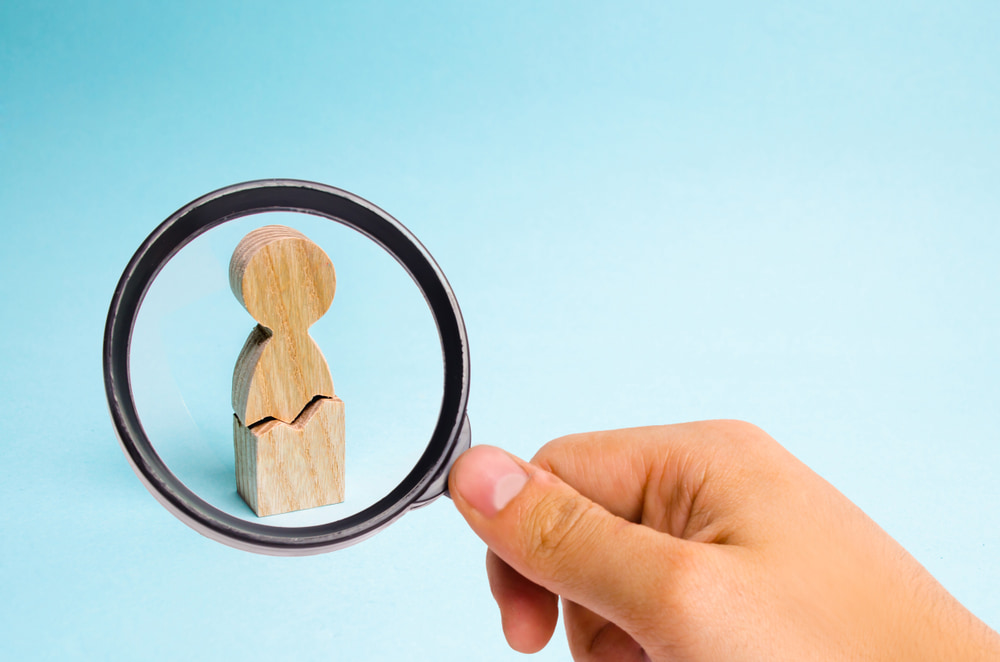Have you ever felt that your relationship is somehow taking a toll on your emotional wellbeing? Have you noticed the negative effects on your life outside of the relationship? And yet, you’re unable to leave despite the pain? You may have mixed feelings about each other, or have difficulties putting it into words. Sometimes, you may be overwhelmed with negativity and guilt, and yet, there may be days that feel like honeymoons.
It’s possible that you’re dealing with trauma bonding, which is a very real phenomenon. Still, how do you tell if it’s true for you or just a red flag? It may be a sign that you need to seek professional help and learn how to build intimacy in a relationship in a healthy way. Read on to learn more!
What Is Trauma Bonding In A Relationship?

Trauma bonding is a type of attachment that can form between two people who have gone through a traumatic experience together. Or, more likely, you may share a compatible attachment pattern that stems from childhood emotional trauma. This bond is characterized by feelings of dependency, neediness, and fear. The connection can be very strong, it can feel genuine, and it can make it difficult for the people involved to leave the relationship, even if it is harmful.
The trauma bond is formed as a result of regular cycles of emotional or physical abuse, depreciation, and periodic positive reinforcement. For example, your partner may constantly put you down and then apologize and buy you flowers after a big argument. Over time, you start to believe that you need your partner in order to feel good about yourself. This is an unhealthy attachment that can be very difficult to break free from.
If you find yourself in a cycle of abuse with someone, it may be that you are trauma bonded to them. This can happen in both romantic and non-romantic relationships. If you think you might be trauma bonded, it is important to seek help from a professional who can support you in breaking free from this unhealthy attachment.
What Are The Signs Of Trauma Bonding?
Childhood trauma bonds are characterized by an imbalance of power between the parent and child, with the parent providing both positive and negative attention. This can be confusing for the child, who may feel both grateful for the parent’s positive attention and responsible for the parent’s outbursts of negativity. As a result, a child’s self-esteem becomes shaped by their perceptions of their parent’s opinions and regard, and this can become a very unstable and self-deprecating base for their adult emotional life.
There are several stages that are common in trauma bonds in attachment relationships:
- Love bombing. This is when your partner showers you with attention and gifts at the beginning of the relationship in order to win you over and then stops abruptly.
- Frequent mood swings. Then your partner may be loving and attentive for a minute, and then cruel and abusive the next. This inconsistency keeps you on your toes and creates an emotional rollercoaster that is hard to adjust to.
- Trust and dependency. Because your partner is often so unpredictable, you may start to depend on them for your emotional needs. This can make it very hard to leave the relationship.
- Low self-esteem. The constant put-downs and criticism can cause you to doubt yourself and your abilities. You may start to believe that you deserve the abuse.
- Criticism. Your partner may find ways to criticize you, even if it’s something small. They may also try to control your behavior and tell you what you can and can’t do.
- Manipulation. Your partner may use manipulation tactics to get you to do what they want. For example, they may guilt you into staying in the relationship or threaten to hurt themselves if you leave.
- Giving up control. In order to please your partner, you may start to give up control of your life. You may do things you don’t want to do, or put their needs above your own.
- Losing yourself. It’s common for people in trauma bonds to lose themselves in the relationship. You may find that you no longer have hobbies or interests outside of your partner. Your sense of self may become wrapped up in their approval or disapproval.
- Addiction to the cycle. Even though the abuse is painful, you may find yourself addicted to the cycle of abuse. The highs and lows can become addicting, and you may start to feel like you need your partner in your life in order to just feel okay.
What Happens When You Are Trauma Bonded?
You may feel like you’re inseparable from the other person. It is usually considered a type of love addiction and the cycle is somewhat similar to substance abuse. Likewise, you’ll most likely go through the following stages you’ll in this type of relationship:
- The first stage is when you develop a strong attachment to someone who is abusive, or you become deeply involved in an abusive situation.
- Over time, you start to believe that you deserve the abuse, or that you are responsible for it. This can happen because the abuser tells you that you deserve the abuse, or because you start to believe that you are responsible for the abuser’s bad behavior.
- Next, you start to feel like you need the abuser in your life, even though they are abusive. This happens because the abuser has become a source of both positive and negative attention, and you have started to rely on them for both emotional and practical support.
- In the final stage, you become so invested in the relationship that you are willing to tolerate any abuse in order to stay in it. This happens because the abuser has become the most important person in your life, and you cannot imagine living without them. And, your efforts to fix them override your own self-care and growth.
How To Know If It’s Love Or Trauma Bonding?
While every relationship is different and can be fraught with various patterns of behavior and emotional exchange at different stages, there are some clues that can help you discern between healthy love and a trauma bond:
- Love is built on trust, respect, and equality, while a trauma bond is more likely to be based on power imbalance, control, and fear.
- Love is voluntary and empowering. Trauma bonding is often coerced or forced, and you may feel trapped, stuck, or powerless to leave.
- Love is selfless and supportive. Trauma bonding is often selfish, destructive, and disruptive.
- Love is positive and stable. Trauma bonding dwells on the negative and thrives on instability.
How Do You Fix A Trauma Bond Relationship?

While the trauma bond is often “mistaken for love”, you may still wonder if there are ways to fix the relationship and if there are enough healthy reasons to preserve it. The pain, emotional trauma, neglect, and the cycle of abuse may be subtle and not easily recognized for what they truly are. You may be so deeply invested in your relationship that you’d be prone to downplay the harm it causes. And, you may be in a relationship that is familier to the unhealthy family of origin household you grew up in. However, the question of whether separating from your spouse is the only way to go is a valid one, and it begs many considerations.
If you finally do acknowledge the fact that you’re rooting against yourself, try to follow these steps to break the bond:
Desist With The Self-Blame
The first step is to make a conscious decision to break the cycle of self-blame. You need to accept that you are not responsible for the abuser’s behavior.
Practice Reality Checks
The second step is to start practicing reality checks. This means that you need to start questioning the abuser’s version of events and start looking at the situation objectively. This can be difficult. However, it’s important to start seeing things as they really are.
Be Inquisitive
This means that you need to start questioning the actions and motives of your partner. Why do they do the things they do? What do they hope to gain from their behavior? Asking questions can help you to see their behavior for what it really is.
Switch Your Outlook
This means that you may need to start thinking about yourself first. What do you want? What do you need? What is best for you? Putting yourself first will help you to see your partner and your relationship more clearly.
Focus On Your Emotions
This means that you need to start paying attention to your own emotions and needs. Paying attention to your own emotions will help you to see your relationship more clearly.
Stop Playing
This means that you need to stop reacting to their behavior in the way they want you to. If they are trying to control you, resist their attempts to control you. This will help you to see that you are not powerless.
Consider The Bigger Picture
This means that you need to start thinking about your life outside of your relationship. Consider what other people and things are important to you and what you want to do with your life. Focusing on something bigger than your relationship can help you to see it in a new light.
If you are in a relationship and you are not sure if it is love or trauma bonding, it is important to reach out to a professional for help. They can assess the situation and provide you with guidance on how to proceed.
Where Can I Find An Insightful Relationship Coaching Retreat For Individuals?
Overcoming a breakup or separation with your life partner is usually easier said than done. Although you’re likely to remember the times when you felt emotionally neglected or abandoned by them, or that you suddenly became unable to invest energy in your intimate relationship like you used to, it can still feel like unfinished business. This is why seeking professional help might lead you to some valuable insights you didn’t realize you needed.Whether you’ve decided to attend couple-based workshops to deepen the intimacy in your relationship, or you’re looking for individual sessions to improve your emotional wellbeing, you can count on PIVOT relationship advocates to provide you with the necessary guidance and support. Get the much-needed retreat and resources with us by contacting us today!

























